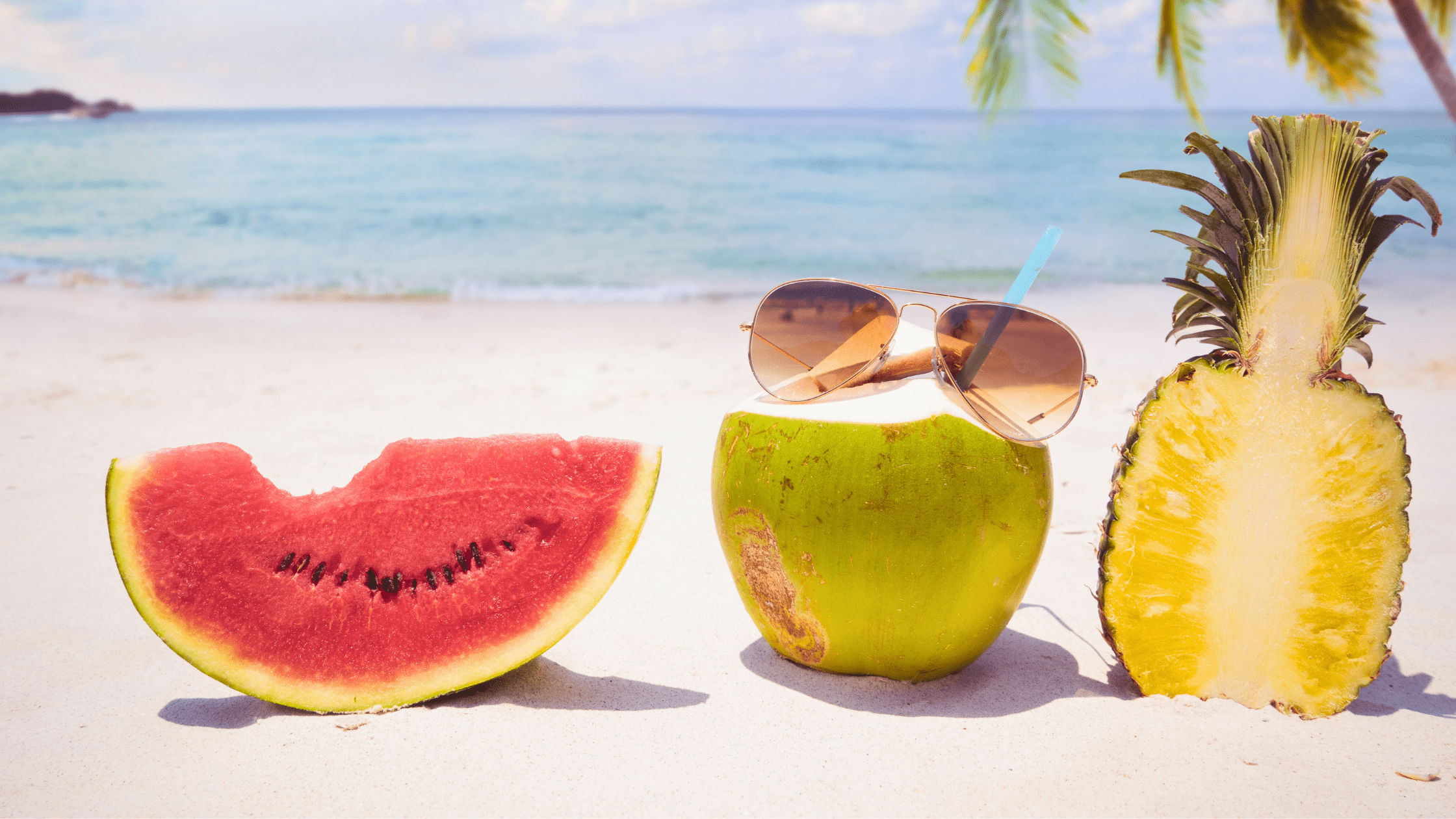Between barbecues and weekend getaways, it’s easy to find yourself reaching for the chips or soda, or diving into a bowl of sugary ice cream. Yummy? Absolutely. Healthy? No way! Luckily, summer also provides an abundance of fresh, nutrient-dense superfoods to help make your summer months a little healthier and a lot more delicious.
But why does it matter? Because the food choices you make every day affect your health – how you feel today and in the future. Good nutrition is an important part of a healthy lifestyle. Combined with physical activity, your diet can help you to reach and maintain a healthy weight, reduce your risk of chronic disease, and promote your overall health. On the flip side, unhealthy eating habits have contributed to an alarming rise in obesity. According to the World Health Organization, about one third of U.S. adults are obese—which is about 36 percent of the population. That’s why it is important to maintain your healthy living goals, even during the summer. Here are a few foods that taste great, and can help you stay on track.
Berries: Naturally sweet berries are high in fiber. Their rich colors also mean they are high in antioxidants and disease-fighting nutrients. Whether fresh or frozen, you can add them to yogurt, cereals, and smoothies. Raspberries, for instance, are a great source of fiber, some of it in the soluble form of pectin, which can helplower cholesterol.
Pineapple: Not only is pineapple one of nature’s best “candies,” it also provides nearly an entire day’s worth of energy-producing manganese, which can give you the sugar rush without the crash. Plus, its acid content detoxifies your body and eliminates body odor, which is pretty beneficial for those hot summer months. What’s more, pineapple also contains an enzyme called bromelain, which acts like a natural anti-inflammatory.
Watermelon: This ruby red fruit can help you to stay hydrated during the sweltering summer months. In fact, watermelon is made up of 92 percent water. It also contains a powerful antioxidant called lycopene, which is a bright red carotenoid hydrocarbon also found in tomatoes. This antioxidant can increase your sun protection naturally—perfect for summer days spent at the beach or park.
Avocados: In the market for some guacamole? Good, because avocados are packed with fiber, vitamins B5, B6, C, K, folate, and potassium, as well as antioxidants. Besides guac, you can also add avocado to a salad or on top of a burger to up the flavor and add a little creaminess.
Extra virgin olive oil: Where would we be without extra virgin olive oil (EVOO)? An excellent source of vitamin E, polyphenols, and monounsaturated fatty acids, EVOO helps reduce the risk of heart disease. It’s so beneficial, we recommend using EVOO in place of butter or margarine in pasta or rice dishes. Or try drizzling a bit over veggies or a salad for a richer flavor.
Green nutrients: A nice refreshing salad bursting with greens sure sounds tasty when the weather’s hot. Dark leafy greens are a good source of vitamin A, vitamin C, and calcium, as well as several phytochemicals. They also add fiber into the diet. Try varieties like spinach, kale, or mustard greens. We recommend throwing in some fresh strawberries into a green salad for a little punch of summer flavor. Or try one of our favorite greens recipes to add variety to your healthy summer routine.
And speaking of greens, we have a few others we think are worth adding to your summer routine—specifically chlorella and spirulina. Chlorella is a freshwater algae that has survived on the earth for over two billion years! The secret to chlorella’s longevity is its fibrous outer wall. The problems is, although this defensive wall protects the single-cell algae within, it also prevents the body’s ability to take advantage of chlorella’s detoxification benefits. Fortunately, scientists have found that breaking this wall releases chlorella’s natural ability to bind toxins and heavy metals through a potent source of minerals, essential fatty acids, protein, and fiber.1
Antioxidant-packed spirulina, on the other hand, has been shown to inhibit the production of inflammatory signaling molecules.2 It is also rich in high-quality protein, B vitamins, iron, copper, magnesium, potassium, and manganese. Not only does this make spirulina an alkaline-rich food, but its abundant nutrient profile also gives it numerous health benefits. Research shows that spirulina supports healthy lipid levels, helps maintain blood sugar balance, benefits those with seasonal allergies, and improves muscle strength.3
There’s no reason to let your healthy eating slip during warmer-weather months. Making sure you stay consistent with your eating habits during the summer ensures both short-term and long-term health benefits. Remember, being healthy shouldn’t be a chore, especially in summer! So switch up your meals, add in some of the superfoods mentioned above, and try to make healthy eating fun and tasty!
References
- Lloyd-Jones, R. Adams, J. McPherson F, et al. Impact of Daily Chlorella Consumption on Serum Lipid and Carotenoid Profiles in Mildly Hypercholesterolemic Adults: a Double-Blinded, Randomized, Placebo-Controlled Study. Nutrition Journal. 2014;13:57.
- Deng R, Chow T. Hypolipidemic, antioxidant and anti-inflammatory activities of microalgae spirulina. Cardiovascular Therapeutics. 2010; 28(4):e33-e45.
- Karkos P, C Leong, Karkos C, et al. Spirulina in Clinical Practice: Evidence-Based Human Applications. Evidence-based Complementary and Alternative Medicine. 2011;2011:531053.
This article is for informational purposes only. This article is not, nor is it intended to be, a substitute for professional medical advice, diagnosis, or treatment and should never be relied upon for specific medical advice.

Share this Post